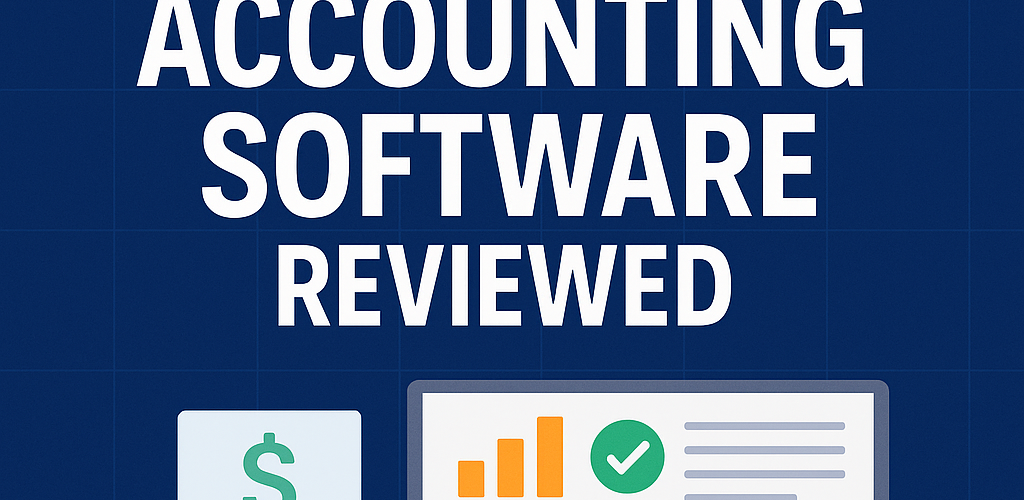Best SMEs Accounting Software Reviewed

Small and medium enterprises (SMEs) operate in a dynamic business landscape where accurate financial management defines long-term success. Accounting software no longer serves just as a record-keeping tool—it now plays a strategic role in automating processes, ensuring compliance, and providing actionable insights. Today, SMEs expect more from their accounting platforms. They want real-time reporting, tax readiness, multi-device access, and integration with other business tools.
This article reviews the best SME accounting software options available in 2025. It compares them based on usability, features, pricing, support, and compatibility with Indian compliance standards.
1. Zoho Books
Zoho Books continues to dominate the SME accounting landscape with its clean interface and affordable pricing. Indian businesses choose Zoho for its GST-compliance, automated payment reminders, integrated banking, and workflow automation. Zoho’s real-time dashboards and mobile app give SMEs powerful financial control even on the go.
What makes it great?
Zoho Books simplifies invoicing, tracks project expenses, automates tax calculations, and matches bank statements effortlessly. SMEs also benefit from Zoho’s ecosystem, which includes CRM, inventory, and payroll tools.
Who should use it?
Small businesses with growing needs that want a cost-effective yet scalable solution.
Pricing: Starts at ₹899/month. Free version available for businesses with annual turnover below ₹25 lakh.
2. TallyPrime
TallyPrime evolved from the iconic Tally ERP and now offers a modern user interface with strong inventory, taxation, and payroll features. Tally’s reputation in the Indian market remains unmatched for businesses that need deep customizations.
What makes it great?
TallyPrime handles complex business scenarios like multiple GST registrations, branch accounting, job costing, and credit management. It supports both on-premise and cloud deployment, giving businesses flexibility.
Who should use it?
Medium-sized firms in retail, distribution, or manufacturing sectors that need robust offline functionality with strong compliance tracking.
Pricing: One-time license fee starting at ₹18,000 + AMC charges.
3. QuickBooks (Online India)
QuickBooks Online delivers one of the most user-friendly and feature-rich accounting experiences for SMEs. With an emphasis on ease of use, it simplifies invoicing, expense tracking, and GST returns.
What makes it great?
QuickBooks offers multi-user access, auto-categorization of expenses, and one-click reporting. Bank feeds work flawlessly, and integrations with apps like PayPal, Shopify, and Razorpay enhance usability.
Who should use it?
Startups, freelancers, and small service providers that want clean design, mobile access, and automated processes.
Pricing: Starts at ₹529/month for the Simple Start plan.
4. Vyapar
Vyapar emerged as a strong local contender tailored specifically for Indian SMEs. It offers a GST-compliant billing and inventory system with built-in payment collection and reporting features.
What makes it great?
Vyapar allows business owners to generate GST bills, send payment reminders via WhatsApp, track stock, and file GSTR-1, 2, and 3B with ease. It even functions without internet connectivity.
Who should use it?
Micro and small businesses that want a Hindi-friendly, easy-to-use accounting tool for daily operations.
Pricing: Lifetime plan starts at ₹2,999 for mobile; desktop version starts at ₹5,999/year.
5. Marg ERP 9+
Marg ERP targets distribution, pharmaceutical, and FMCG sectors with powerful inventory and accounting capabilities. It enables batch-wise stock tracking, expiration management, and barcode scanning.
What makes it great?
Marg automates everything from procurement to invoicing and taxation. It also includes e-invoicing features, TDS management, and real-time profit reports.
Who should use it?
Retailers and wholesalers dealing with physical goods who need in-depth inventory controls.
Pricing: Starts at ₹8,100 per year per user. Add-ons may cost extra.
6. Busy Accounting Software
Busy caters to SMEs that want deep accounting features, multi-location inventory tracking, financial ratios, and statutory compliance. Its interface feels dated, but its capabilities run deep.
What makes it great?
Busy allows users to manage multi-branch operations, handle GST complexities, and generate audit-ready reports. It includes features like voucher approvals, job work, and scheme management.
Who should use it?
Firms with accounting teams that understand ledger management and want advanced features over modern UI.
Pricing: Basic edition starts at ₹9,000/year. Enterprise version costs more with custom modules.
7. FreshBooks
FreshBooks originated as an invoicing tool for freelancers but evolved into a comprehensive cloud accounting platform. It offers great UX and automation for recurring billing, time tracking, and project cost management.
What makes it great?
FreshBooks provides clean dashboards, expense categorization, multi-currency invoicing, and client portals. It integrates smoothly with Slack, Stripe, Trello, and GSuite.
Who should use it?
Designers, consultants, and small agencies who want visually engaging financial reports and automated invoicing.
Pricing: Plans begin at $19/month. Free trials are available.
8. Xero
Xero stands out for its modern design, cloud-first approach, and a rich app ecosystem of over 800 integrations. Its bank reconciliation feature outshines competitors, and real-time collaboration simplifies accountant access.
What makes it great?
Xero supports inventory, payroll, and project accounting. Its UI works well across devices, and businesses gain real-time financial insight through visual dashboards.
Who should use it?
SMEs operating internationally or those with remote teams that value collaborative tools and multi-currency support.
Pricing: Starts at $15/month for the starter plan. Mid-tier plans offer full feature access.
9. ProfitBooks
ProfitBooks, an Indian SaaS-based solution, offers GST-ready accounting and payroll for growing businesses. Its visual UI helps non-accountants manage finances without confusion.
What makes it great?
ProfitBooks automates recurring invoices, generates eWay bills, and offers real-time tax reports. It also includes basic inventory and vendor management.
Who should use it?
Traders and service providers with less accounting knowledge who want plug-and-play functionality.
Pricing: Free plan available with limits. Premium version starts at ₹3,999/year.
10. Book Keeper
Book Keeper gives SMEs access to offline-friendly accounting with real-time sync to the cloud. Its intuitive layout, barcode scanning, and inventory support help with business digitization.
What makes it great?
Book Keeper offers ledger management, billing, TDS/GST support, and mobile-first accessibility. Many retailers and wholesalers rely on it for quick invoice generation and stock tracking.
Who should use it?
Businesses looking for a local, affordable, and mobile-ready solution with basic features.
Pricing: Android app starts at ₹500/year. Desktop versions vary based on features.
Key Considerations When Choosing SME Accounting Software
Before making a choice, every SME must consider the following:
- GST Compliance: Businesses operating in India must track tax calculations, GSTR returns, and e-invoicing regulations.
- Scalability: Your accounting software should grow with your business without needing a platform shift.
- Ease of Use: Tools should not require extensive accounting knowledge to operate.
- Integration Support: Seamless connection with payment gateways, CRMs, and inventory tools improves efficiency.
- Support & Training: Reliable customer service, tutorial libraries, and community forums improve onboarding and troubleshooting.
Conclusion
Choosing the right accounting software empowers SMEs to manage finances proactively. Tools like Zoho Books and QuickBooks offer intuitive interfaces and cloud-based automation. TallyPrime and Marg ERP serve niche business needs with deep functionality. Meanwhile, local players like Vyapar, ProfitBooks, and Book Keeper simplify operations for micro-businesses in regional markets.
Each solution delivers unique advantages. Evaluate your team’s tech literacy, business complexity, and budget to pick the right platform. The best accounting software doesn’t just record transactions—it helps you make smarter decisions, stay compliant, and grow confidently.













